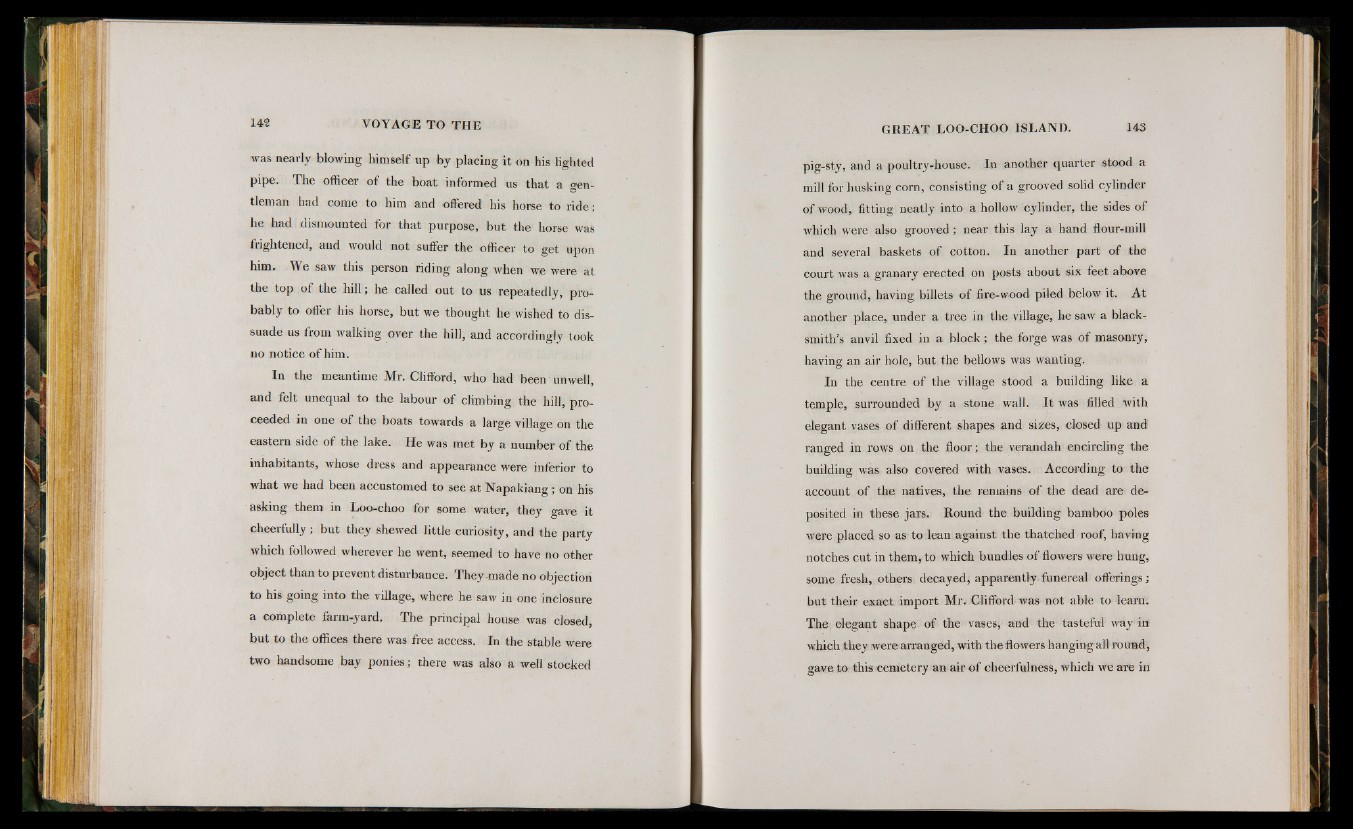
was nearly blowing himself up by placing it on his lighted
pipe. The officer of the boat informed us that a Owentleman
had come to him and offered his horse to ride ;
he had dismounted for that purpose, but the horse was
frightened, and would not suffer the officer to get upon
him. We saw this person riding along when we were at
the top of the h ill; he called out to us repeatedly, probably
to offer his horse, but we thought he wished to dissuade
us from walking over the hill, and accordingly took
no notice of him.
In the meantime Mr. Clifford, who had been unwell,
and felt unequal to the labour of climbing the hill, proceeded
in one of the boats towards a large village on the
eastern side of the lake. He was met by a number of the
inhabitants, whose dress and appearance were inferior to
what we had been accustomed to see at Napakiang; on his
asking them in Loo-choo for some water, they gave it
cheerfully; but they shewed little curiosity, and the party
which followed wherever he went, seemed to have no other
object than to prevent disturbance. They made no objection
to his going into the village, where he saw in one inclosure
a complete farm-yard. The principal house was closed,
but to the offices there was free access. In the stable were
two handsome bay ponies; there was also a well stocked
pig-sty, and a poultry-house. In another quarter stood a
mill for husking corn, consisting of a grooved solid cylinder
of wood, fitting neatly into a hollow cylinder, the sides of
which were also grooved; near this lay a hand flour-mill
and several baskets of cotton. In another part of the
court was a granary erected on posts about six feet above
the ground, having billets of fire-wood piled below it. At
another place, under a tree in the village, he saw a blacksmith's
anvil fixed in a block; the forge was of masonry,
having an air hole, but the bellows was wanting.
In the centre of the village stood a building like a
temple, surrounded by a stone wall. I t was filled with
elegant vases of different shapes and sizes, closed up and
ranged in rows on the floor; the verandah encircling the
building was also covered with vases. According to the
account of the natives, the remains of the dead are deposited
in these jars. Round the building bamboo poles
were placed so as to lean against the thatched roof, having
notches cut in them, to which bundles of flowers were hung,
some fresh, others decayedj apparently funereal offerings;
but their exact import Mr. Clifford was not able to learn.
The elegant shape of the vases, and the tasteful way in
which they were arranged, with the flowers hanging all round,
gave to this cemetery an air o f cheerfulness, which we are in